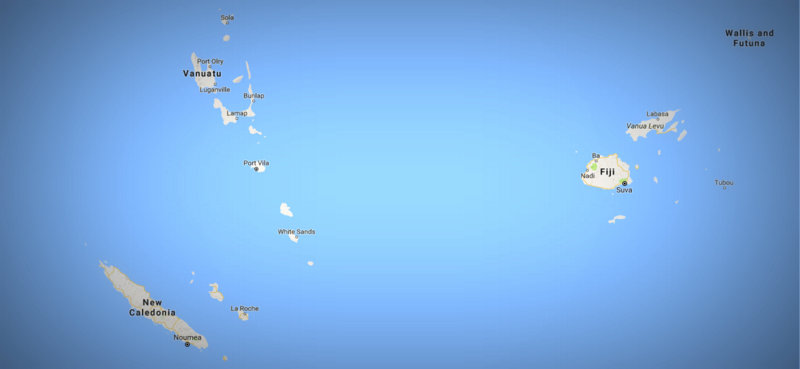 (Source: RNZ Press Release via London Shortwave)
(Source: RNZ Press Release via London Shortwave)
Press release: Following the ABC’s decision to cut shortwave radio transmission in the Pacific, Radio New Zealand International wants to reassure our listeners that we are committed to our Pacific broadcast partners.
Radio New Zealand International (RNZI) continues to serve people across the Pacific region, delivering essential day to day news and information and providing a vital lifeline in times of natural disaster.
RNZ CEO, Paul Thompson, has confirmed that there will be no reduction in Radio New Zealand’s commitment to its Pacific broadcast partners. His reassurance comes as Radio Australia closes its international shortwave transmission service to Papua New Guinea and the Pacific.
Paul Thompson has emphasised the importance of RNZI’s 25 year relationship with New Zealand’s Pacific neighbours.
“Remote parts of Papua New Guinea, Solomon Islands and Vanuatu who may be feeling the loss of the ABC can rest assured RNZI will continue to provide independent, timely and accurate news, information and weather warnings as well as entertainment to its Pacific listeners.”
RNZI has been broadcasting since 1990 to the Pacific and is regarded as the authoritative voice of the Pacific. It can be heard across the region and has proven to be a vital lifeline during times of disaster. In 2007 RNZI was named international Radio Station of the Year by the Association for International Broadcasting (AIB).
RNZI broadcasts timely cyclone and tsunami warnings via shortwave and can continue to be heard should local broadcasters go off-air due to a cyclone or other disaster.
Paul Thompson said the essential nature of Radio New Zealand’s role in the Pacific has been regularly underlined by the positive feedback to RNZI following cyclone and tsunami alerts.
“A Vanuatu villager has told our reporter Koroi Hawkins that he knew to take shelter during Cyclone Pam just because of the warnings broadcast on RNZI. At times like this we are the essential voice of the Pacific ” See attached photograph.
RNZI’s coverage of the aftermath of Cyclone Pam in Vanuatu in 2015 won RNZI reporter Koroi Hawkins a silver medal at the prestigious New York Festival Radio Awards in 2016.
RNZI broadcasts in digital and analogue short wave to radio stations and individual listeners across the Pacific region.
Around twenty Pacific radio stations relay RNZI material daily, and individual short-wave listeners and internet users across the world tune in directly to RNZI content.
The RNZI signal can sometimes be heard as far away as Japan, North America, the Middle East and Europe. RNZI also provides rich content for online users through our website
How to listen to RNZI
For further information contact:
Walter Zweifel, RNZI News Editor +644 474 1432
Adrian Sainsbury, RNZI Technical Manager, +644 474 1430 [email protected]

Extremely pleasing to hear RNZ will continue to provide a quality short wave service to the Pacific.
RNZ’s signal is well heard in Far Western QLD and the Northern territory of Australia where Medium wave signals are non existant or severely fading during the day and the ABC much vaunted expansion of FM services is not possible.
Now that the ABC has cut the Pacific/Papua New Guinea transmissions this leaves RNZ and the powerfull Chinese Bejing “China Drive” english services as the only daytime receivable sigals for many outback based workers . truck drivers and outback stations when not plugged into the Vast satellite service which is not possible when moving .
Our 4WDs based Pioneer radio has 2 SW bands and RNZ’s frequencies are set in the memory .
Interestingly Australian vehicle based CD/radios supplied by JVC, Pioneer and Kenwood (not Sony) are supplied with 2 SW bands, The USA and Europe tended not to receive these models.
There was a good reason for this in a large country such as Australia with vast expanses of remote outback. People listen on SW!
All outback RFDS and VKS emergency services are on HF SW frequencies for a very good reason ie they work!
Shame on the ABC for abandoning the bush and outlying islands and PNG and then promoting their expansion of short range FM services to a largely coastal and metro audience who are already spoiled for choice.
The cost was insignificant to maintain these services (apparently 1.5 mil) a drop in the bucket when compared to some of the flippant spending Canberra is so well known for.
The loss of goodwill and indeed life due to the loss of warning system may come to haunt us here in future.
One can only hope that R Australia’s transmitters and antenna infrastructures will be mothballed rather than dismantled due to the importance of having these reliable long range signals available if and when the digital networks suffer catastropic failure, disaster/clandestine hacking etc.
Good on you RNZ I guess we’ll be more aware of whats happening there than here!
regards Ross
RNZI will eQSL, too.
http://www.radionz.co.nz/international/qsl
Good on you rnzi. At least your voice will be heard, unlike other, more myopic countries. I very much appreciate RNZI’s inclusion of indigenous voices, especially over the australian gov’ts treatment of the refugees in Nauru.
The australian gov’t just lost its voice.
I’m glad to see that there are some decision makers in the broadcasting business that have their priorities straight and put the safety of the public above the almighty dollar. I’m sure ABC could have found other places to cut costs like management bonus’s for instance. Kudo’s to you RNZI!